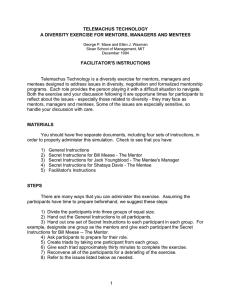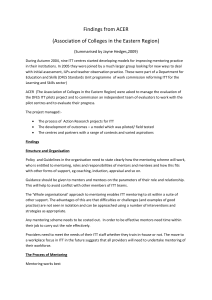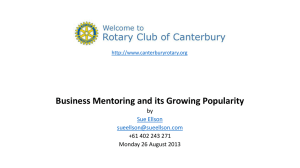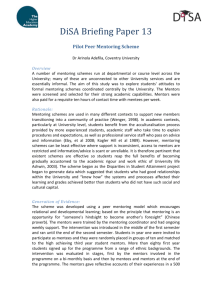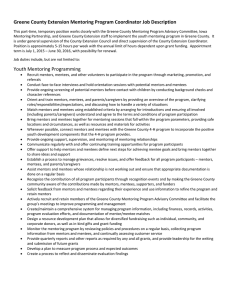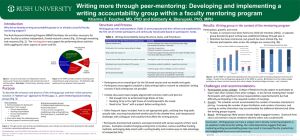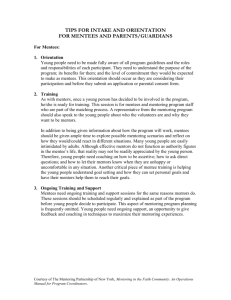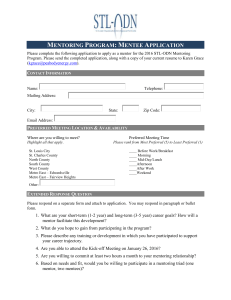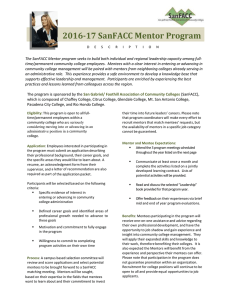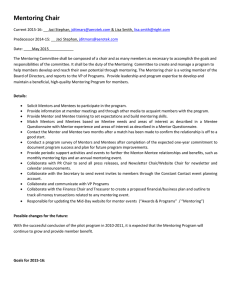Access
advertisement
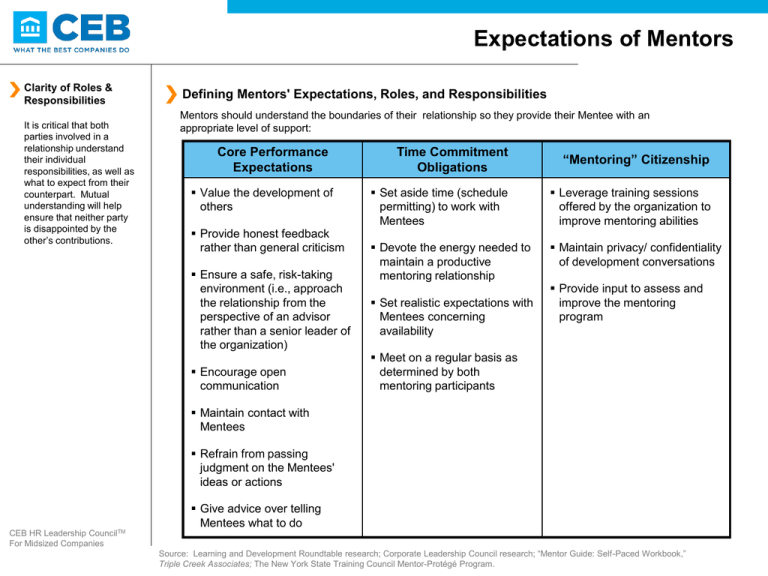
Expectations of Mentors Clarity of Roles & Responsibilities It is critical that both parties involved in a relationship understand their individual responsibilities, as well as what to expect from their counterpart. Mutual understanding will help ensure that neither party is disappointed by the other’s contributions. Defining Mentors' Expectations, Roles, and Responsibilities Mentors should understand the boundaries of their relationship so they provide their Mentee with an appropriate level of support: Core Performance Expectations Value the development of others Provide honest feedback rather than general criticism Ensure a safe, risk-taking environment (i.e., approach the relationship from the perspective of an advisor rather than a senior leader of the organization) Encourage open communication Time Commitment Obligations “Mentoring” Citizenship Set aside time (schedule permitting) to work with Mentees Leverage training sessions offered by the organization to improve mentoring abilities Devote the energy needed to maintain a productive mentoring relationship Maintain privacy/ confidentiality of development conversations Set realistic expectations with Mentees concerning availability Provide input to assess and improve the mentoring program Meet on a regular basis as determined by both mentoring participants Maintain contact with Mentees Refrain from passing judgment on the Mentees' ideas or actions Give advice over telling Mentees what to do CEB HR Leadership CouncilTM For Midsized Companies Source: Learning and Development Roundtable research; Corporate Leadership Council research; “Mentor Guide: Self-Paced Workbook,” Triple Creek Associates; The New York State Training Council Mentor-Protégé Program.

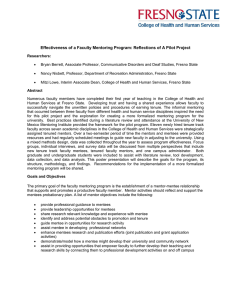
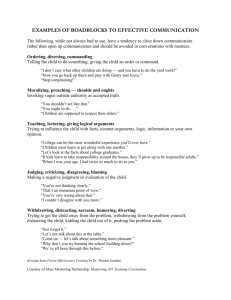
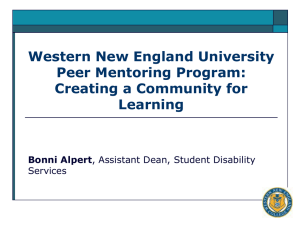
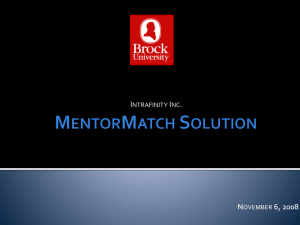
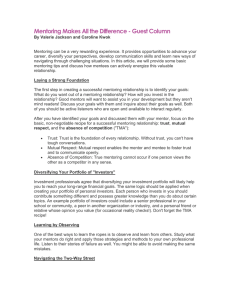

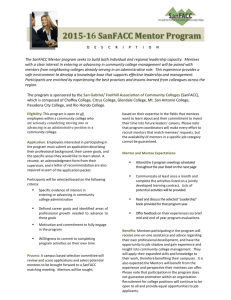

![ESRC DTC Mentoring Circles Training [PPTX 195.02KB]](http://s2.studylib.net/store/data/015089687_1-80c0572c9c7f9f31c9fbf0f705613d97-300x300.png)
